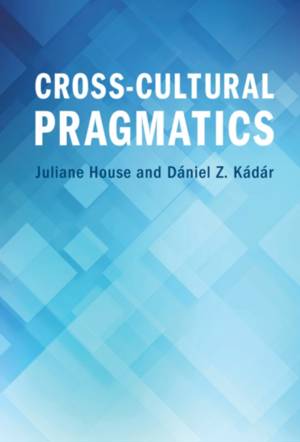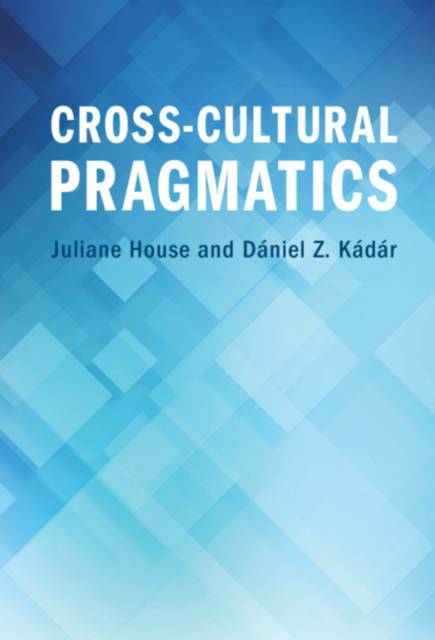
Bedankt voor het vertrouwen het afgelopen jaar! Om jou te bedanken bieden we GRATIS verzending (in België) aan op alles gedurende de hele maand januari.
- Afhalen na 1 uur in een winkel met voorraad
- In januari gratis thuislevering in België
- Ruim aanbod met 7 miljoen producten
Bedankt voor het vertrouwen het afgelopen jaar! Om jou te bedanken bieden we GRATIS verzending (in België) aan op alles gedurende de hele maand januari.
- Afhalen na 1 uur in een winkel met voorraad
- In januari gratis thuislevering in België
- Ruim aanbod met 7 miljoen producten
Zoeken
€ 191,95
+ 383 punten
Uitvoering
Omschrijving
This book provides a cutting-edge introduction to cross-cultural pragmatics, a field encompassing the study of language use across linguacultures. Cross-Cultural Pragmatics is relevant for a variety of fields, such as pragmatics, applied linguistics, language learning and teaching, translation, intercultural communication and sociolinguistics. Written by two leading scholars in the field, this book offers an accessible overview of cross-cultural pragmatics, by providing insights into the theory and practice of systematically comparing language use in different cultural contexts. The authors provide a ground-breaking, language-anchored, strictly empirical and replicable framework applicable for the study of different datatypes and situations. The framework is illustrated with case studies drawn from a variety of linguacultures, such as English, Chinese, Japanese and German. In these case studies, the reader is provided with contrastive analyses of language use in important contexts such as globalised business, politics and classrooms. This book is essential reading for both academics and students.
Specificaties
Betrokkenen
- Auteur(s):
- Uitgeverij:
Inhoud
- Aantal bladzijden:
- 304
- Taal:
- Engels
Eigenschappen
- Productcode (EAN):
- 9781108845113
- Verschijningsdatum:
- 30/09/2021
- Uitvoering:
- Hardcover
- Formaat:
- Genaaid
- Afmetingen:
- 152 mm x 229 mm
- Gewicht:
- 576 g

Alleen bij Standaard Boekhandel
+ 383 punten op je klantenkaart van Standaard Boekhandel
Beoordelingen
We publiceren alleen reviews die voldoen aan de voorwaarden voor reviews. Bekijk onze voorwaarden voor reviews.









